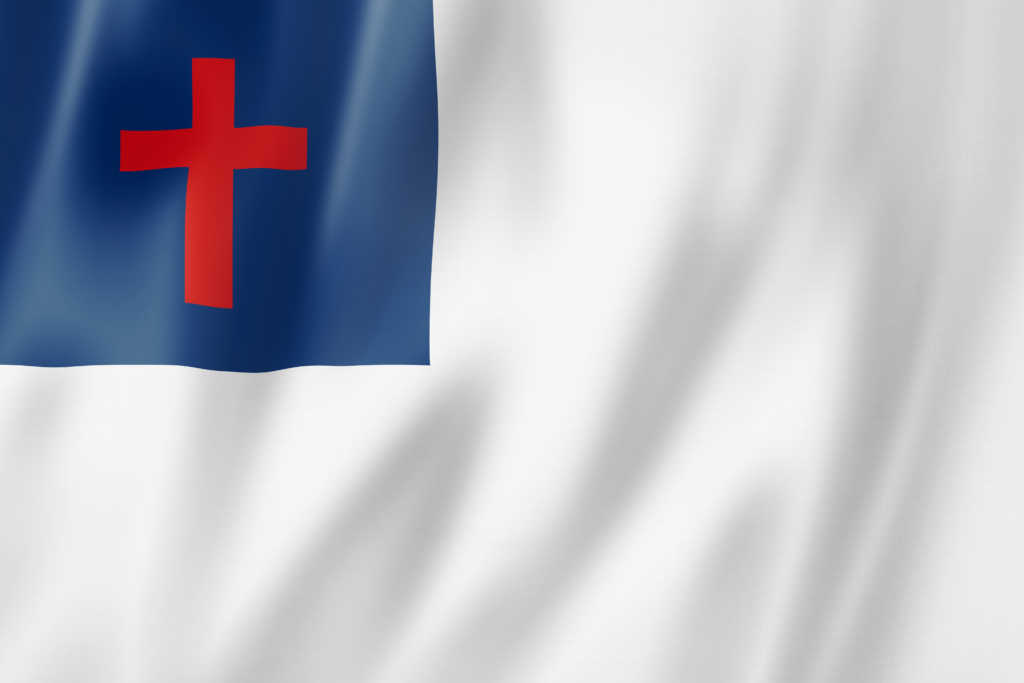A lawsuit has been launched against the city of Boston, Massachusetts after they allegedly banned the Christian flag from flying, while simultaneously allowing hundreds of others to fly.
In August 2017, Camp Constitution, a Christian summer camp, requested that the Christian flag be flown during a demonstration on Constitution Day.
According to their lawsuit, their request was rejected, and they were not allowed to fly the Christian flag during their September 17, 2017 celebration.
As a result, Hal Shurtleff, director Camp Constitution who is represented by Liberty Counsel, filed a lawsuit against the injunction, in order to be able to fly the Christian flag.
Shurtleff’s request was denied by U.S. District Court Judge Denise Casper and was then upheld by the U.S. Court of Appeals for the First Circuit in Boston as well.
“There’s no question that it is an unconstitutional act and originally said it was a violation of the First Amendment, which I find ironic,” Shurtleff told Fox News. “I’m optimistic the lawsuit will go our way.”
While the city claims that they don’t fly non-secular flags, the lawsuit points out that the city has flown religious flags countless times in the past.
According to the lawsuit, the Turkish flag, which has the Islamic star and crescent, has been raised a minimum of 13 times in Boston over the past 14 years.
The city has also allowed the Chinese, Cuban, and Vatican flags to fly in front of city municipal offices, which goes against what they told Camp Constitution. In total, 284 different types of flags have been flown in the city of Boston, including transgender and LGBT flags.
“Yet, despite all of these many flag raisings containing religious symbols and imagery, and the City’s allowing the official flag of the Catholic Church, Camp Constitution’s proposed flag-raising was denied because it was ‘religious,’” the suit says.
“There can be no dispute that the City’s denial impermissibly discriminated between religion and non-religion, and discriminated between religious sects. Both violate the Establishment Clause.”
Mat Staver, founder, and chairman of Liberty Counsel pointed out that the censorship of the flag was setting precedent for all cases to come.
“Censoring religious viewpoints in a public forum where secular viewpoints are permitted violates the First Amendment,” Staver pointed out. “Boston city officials may not ban the Christian flag as part of a privately-sponsored event when they allow any other flag by numerous private organizations. It’s time for the court to stop the city’s unconstitutional censorship.”
The lawsuit further points out that, “prior to Camp Constitution’s request for access to the City Hall Flag Poles” the city did not restrict any submissions.
Although both the federal court and the court of appeals ruled in favor of the city, the Liberty Counsel believes that they have “key facts” that will “compel a result in Camp Constitution’s favor.”
History of the Christian flag
In 1897, Charles C. Overton, a Sunday school superintendent in New York, was forced to give a Sunday school kick-off speech after the guest speaker failed to show.
Inspired by the American flag, off to the side near the podium, he began to talk about the importance of flags and the meaning behind them.
Somewhere in his speech, he realized that there was not a flag that represented Christians.
Years later, Overton partnered with Ralph Diffendorfer, secretary to the Methodist Young People’s Missionary Movement, to create a Christian flag.
They matched the flag colors to that of the United States flag, the blue representing fidelity, the white peace, innocence, and purity, and then red for the blood of Christ.
Since it’s creation, the flag has been flown all over the world in different countries, cities, and even on the battlefield, as a symbol that unites so many together as one.



